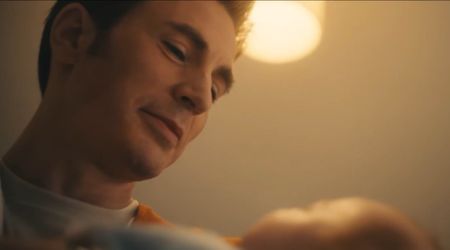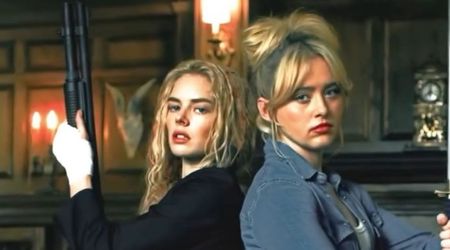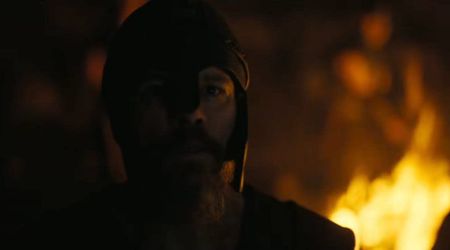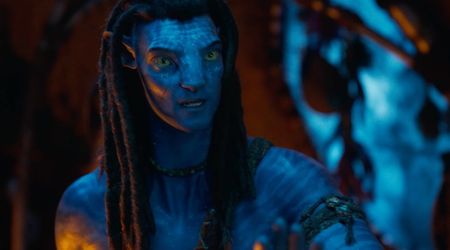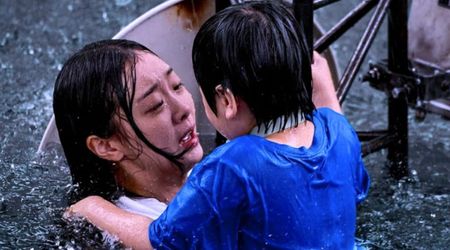Nathan's Kingdom: A fantastical tale of a brother and sister's search for utopia

An utopia is a kingdom where thoughts transform into reality, and thoughts only become real when a person overcomes his/her fear or doubts to give wings to the imagination.
Olicer J Muñoz in his film 'Nathan's Kingdom' explores the various dimensions of a person's imagination and how it could overtake reality completely.
The plot chiefly revolves around the brother and sister, 25-year-old Nathan and teenager Laura, who are stuck together after their parents' divorce. Laura sees Nathan through all his periods when he is challenged by the world he lives in, into adulthood, when she finally succumbs under the pressure of the responsibility.
The film opens with the sister explaining to her elder brother that she had gone in search of her "kingdom", as she tries to convey to him, everyone has a kingdom - including him.
Nathan's whole life seems to revolve around the idea of a near perfect kingdom, where none of their problems exist, and he isn't mentally unwell.
While most of the plot might seem to focus on Nathan's urge to find out that perfect kingdom beyond good or evil, it provides a more deeper insight into Laura's struggle to behave like an adult while she is still a kid.
She follows her brother and keeps a watch on him, while he keeps convincing his sister that once the perfect kingdom is found everything will be fine.
"You and I will be happy there." Laura who is probably just out of college struggles hard to make ends meet. At a point, she almost gives up and decides to send off her brother to a care center - where people are looked after because their loved ones aren't able to - suggested by a social worker. However, in spite of everyone blaming her and trying to shove into her head about her liability, Laura never leaves behind her brother. She protects him like the guardian in Nathan's story about the angel and the condor angel.
As in the words of the director, Munoz, "Nathan and Laura use their imagination in order to cope. This is all they've known. They have never been able to 'fit' into society. With a tough childhood, no parental figures, and the world against them, their imagination and storytelling are what they could rely on. This imaginative world is so important to Nathan's understanding of how to process the world. Lauren learned this early on and has used this to form a strong and unique bond with her brother. It has become their way of navigating through the world and better understanding each other."

Nathan's story, as Laura exclaims, could be both metaphorical and allegorical. He tells her a story he thought about while designing his book, about an evil condor falling in love with a beautiful angel. They give birth to a son. However, to keep their son away from all evil deeds, the angel falls from heaven and turns herself into a tree. She breaks off their son's beak to conceal his identity and feeds him through her roots and branches. The relationship between the angel and the condor angel is a lot like what Nathan shares with his sister. Laura fell from her popularity and the possibly high-profile life that she could have led.
Yet she chose to fall, give up on her comforts, to take care and protect her brother from all the evil that surrounds them.
Munoz explains that the book was intended to "provide a structure for the film as well, hopefully providing a deeper moral understanding of their journeys." He also draws attention to the fact that "Nathan uses his book to create a world using his imagination. It's his way of dealing with everything in his life including his complicated relationship with his sister. It's also his way of dealing with his identity and the way society accepts (or does not accept) people with autism."
The second part of Nathan's story could be treated more as Nathan's yearning to be the protector. The condor angel too has a family which now is under the threat of his father, the condor. However, the angel faces his father while protecting his kingdom and gets killed. His son goes into hiding. Probably this is the lost kingdom that Nathan has been looking for. In the final scene, he finally meets a condor angel which takes the viewer back to the start where Laura had told Nathan about the kingdom. He finally is able to be the protector when he faces the imaginary condor and defeats it, thus defeating his own doubts and fear.
Nathan's book acts like a map into the story. The story within a story gives the film its edge, aligning it to the concept of reality on screen. Laura finally sets out to look for her own kingdom, when her brother decides to seek help at the rehab center. She realizes that she has always been different, just like her brother, and they have been parts of each other.
While their personalities would often set them apart, they both shared a common interest in playing pretend where they are both looked upon by a guardian angel. While Laura grew up to be an adult, and gradually let the memories fade, she was always brought back to her imagination every time she would play pretend with Nathan. Those were the only times when the siblings were on the same page.
Munoz says, "The Condor Angel is a materialized guardian angel. The Condor Angel is the hero, role model, father figure, and the identity Nathan wants to personify for the sake of protecting his younger sister and himself. To an extent, we all need to be looked after, have someone to lean on and help guide or protect us. The Condor Angel fills Nathan's void for never having a structured home."
While Munoz might have a long way to go to provide his audience with a clear sense of cinematography, his use of the color palette is well committed to the mood of the film. He uses beads and buttons, beaches, and peaches to highlight the scenes which take place in the desert to set the mood of innocence and self-search. When depicting the more disturbed states of mind such as the war between the angels he uses the solar flare, meringue swirls, and Depeche mode spirit.

Munoz's film is undoubtedly an exciting watch as it gradually reveals the depth of relationships through imaginary tales. It is a little inclined to the concept of Gabor Csupo's 'A Bridge to Terabithia', however, Munoz focuses more on the struggles of growing up without any guidance. The message might seem to be somewhat Biblical, and the background scores seem to follow the subtle tone of the madrigals. The actors have done a fair job, although there is a lot of scope for improvement. However, Madison Ford and Jacob Linse certainly have put in immense efforts to portray the estranged siblings.
'Nathan's Kingdom' will be screened at Dances With Films on Wednesday, June 13 at 7.15 pm.

